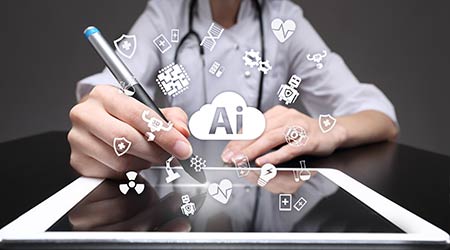Healthcare providers are seeing a growing patient load that is slowly becoming more difficult to manage. Catering to the patient experience becomes tough as operational challenges increase. For instance, in situations where appointment schedules are not appropriately optimised, the disruption to patient flow throughout a facility can have a considerable impact on waiting times. Providers have to keep a steady stream of patients and visitors while accommodating them with the appropriate resources such as clinical staff, hospital beds and operating theatres. If these problems are not dealt with adequately, the operational consequences can accumulate leading to dissatisfied patients, and inefficient and expensive resource utilisation. This brings up the first of five ways artificial intelligence benefits the healthcare industry:
-
It can plan more effectively than humans as the demand for healthcare services grows, according to Healthcare IT. Healthcare administrators can only engage with a limited number of patient data at once. AI can compute an almost unlimited amount of data for the provider. Instead of the provider taking patients’ exact preferences for dates and appointment times within a specific time frame, AI technology would collect more general preferences from patients due for an appointment within a particular period. Using advanced analytics and machine learning techniques, the system would consider clinician schedules, facility availability, service type, and more to create an ideal schedule.
-
Medical image recognition is made easier. AI can go through images and X-rays of the body much faster than humans can. This helps with the diagnosis and treatment of that particular case. In radiology AI techniques automatically notice complex patterns in imaging data to give quantitative, rather than qualitative evaluations of radiographic imagery.
-
Robot-assisted surgeries are becoming increasingly popular, according to Analytics Insight. Some operations can be conducted remotely to reduce pathogen spread. Throughout preoperative care, anaesthesia, the actual surgery, and postoperative care, the goal is to lessen contact between patient and provider.
-
Brain-computer interfaces help with restoring physical functionality such as speech and movement. This benefits those who are affected by neurological diseases or nervous system damage caused by strokes or spinal cord injuries.
-
Virtual healthcare assistants are great for accommodating patients. They can be used to inform patients about medicine timing and drug warnings. They can also be used in monitoring and aiding facilities to patients when there is no provider nearby.

 Building Disaster Resilience Through Collaboration
Building Disaster Resilience Through Collaboration Amae Health Expands to New York City
Amae Health Expands to New York City Hospital for Special Surgery Opens Two New Facilities in New Jersey
Hospital for Special Surgery Opens Two New Facilities in New Jersey Should We Be Testing Toilet Water in Patient Restrooms?
Should We Be Testing Toilet Water in Patient Restrooms? Healthcare Union Petitions for Increased Staff Safety at HCA Florida Hospitals
Healthcare Union Petitions for Increased Staff Safety at HCA Florida Hospitals